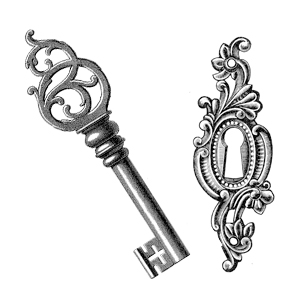Once Upon a Time the Animals Disappeared from the Wild
It happened slowly at first, so incrementally that only locals noticed. Amongst the first to disappear were the Caribbean Monk Seals. They showed up in a public swimming pool in Jamaica. Around the same time, Barbary Lions began to roam the souks of Algeria and Morocco, and the Arabian Ostrich loitered by the Torah Ark in a Petra synagogue (which wasn't a huge surprise because the rabbi knew that Ostrich meat was forbidden to Jews).
Most of these animals lived in far flung places so many people didn't notice. They weren't indifferent to their disappearance they just weren't paying attention because really, why would they?
One day it was announced that 23 species of birds only found on the Hawaiian Islands were extinct in the wild, which explained much to those vacationing in four star hotels dodging bird droppings in the dining rooms. A few years later Western Black Rhinos took over a Hilton Hotel bar in Cameroon and put a decisive damper on alcohol sales.
When fireflies and frogs turned up in kitchens and laundry rooms, more people noticed. No more fairy lights blinking in the woods on hot summer nights nor the soothing croaks of lonely male frogs in suburban washes. Children were kept awake by the bioluminescence and noise in their bedrooms, and in homes near lakes and oceans what was once a source of food became a scourge as fish clogged bathtub faucets and came up through toilet plumbing.
Houses and businesses became unbearably full of animals of all kinds. Red-Tailed Hawks were no longer seen gliding on the canyon updrafts and the smaller Coopers Hawks that people regularly saw in their neighborhood trees were now in their living rooms. Butterflies, common birds, insects, and mammals large and small were impossible to keep out. They were in to stay and eventually, they died there.
The stench of carcasses became more unbearable than their excrement had been and much more difficult to dispose of. It became a national disaster and source of embarrassment until one day, they were all gone. The people shook their heads and wondered how it had happened that they had not noticed and acted sooner. They told stories to their grandchildren about the wondrous creatures that roamed the earth, once so taken for granted, now extinct. The children hardly believed them.
Khadija Anderson returned in 2008 to her Los Angeles birthplace after an 18-year exile in Seattle. Khadija's work has been published extensively online and in print journals and anthologies. In 2009, the editors and readers of Qarrtsiluni nominated her poem “Islam for Americans” for a Pushcart Prize. Her first book of poetry, History of Butoh, was published by Writ Large Press and she currently runs a monthly social justice themed reading series in Los Angeles: Poets & Allies for Resistance.

